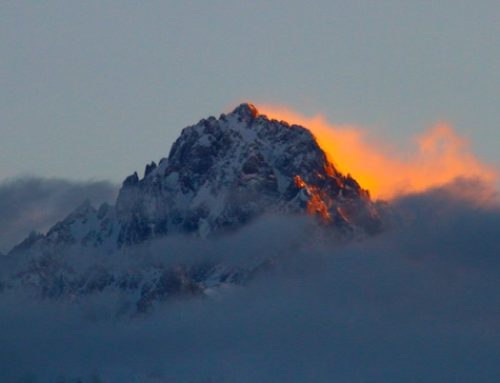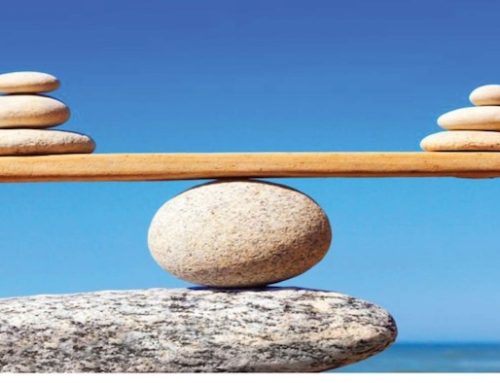The provenance of wisdom is a gathered life. Yes, education and experience are elements of wisdom, but time must pass for them to be properly gathered in a manner that conveys truth and understanding which manifest power. The poet, David Whyte, reckons that “a summation of previous intuitions” might be the binding agent of wisdom—of a gathered life. Out of these connections between seemingly disconnected experiences and observations come patterns that provide the structure of visions about the world that inevitably rhyme with another time.
One of wisdom’s ironies, of course, is that the more wisdom we have the less we share it. Perhaps because those of us with enough gathered life, which is to say, old, know that youth must, as we certainly did, live their own life that will then be gathered. Perhaps it is also true that the old and wise keep to themselves once they have received the inevitable eye-roll dismissal from those most in need of wisdom. In many cultures, wisdom from gathered lives is highly regarded—even sought with reverence. Unfortunately, ours is not one of those cultures. Also, as we age—as our gathered life comes into fruition—we become less fearful even while we are less strong (at least physically). Something in our past says, “Fear not, we have seen this movie before.”
Putin is not the first, nor will he be the last, agent of evil. Once we have lived long enough, we know, even as we watch evil take the lives of so many innocents today, that it will be overcome by truth, love, and justice. Evil is simply unsustainable. As I watch Putin sit alone at the end of his long hideous table, dispensing his many admonitions and instructions to those he subjugates with fear, I wonder if anyone there yearn for truth that might set them free. Embracing deceit as a modality is uncomfortable for a reason: it is incompatible with inner peace. Truth is the backbone of solace. If you need a more immediate example, look at Trump. His life is so completely denominated in deceit that he has likely never even experienced a sense of inner peace. Rather, he is consumed by inner rage. The only time he smiles are photo-ops when he is liberating a donor of the cash in their pocket.
At his essence, Putin is a very scared little man. It appears that no one can stop him, but my wisdom—my gathered life —knows he will be stopped by the beauty and durability of truth, which will cascade down upon him regardless of where he hides, or what other despot(s) might come forward to support him. It is no coincidence that Hitler, Mussolini, and eventually Stalin, were also very much alone as justice found them. In the name of power, he kills. But, also in the name of power—mitigated by love—he shall face justice. This was the American theologian, Paul Tillich’s, greatest contribution to the contemplation of power: that love is what turns power into justice. We must, therefore, have faith in our own collective moral moorings. In the midst of horror, we must do what we can to accelerate the arrival of justice. And yet, regardless of these efforts, I am quite certain that power, mitigated by love, will be visited upon Mr. Putin in time, manifested as justice. To put it more simply, truth has no expiration date and love for the innocents lost will prevail over the evil of Mr. Putin. It is just a matter of time.
In the meantime, we must recommit ourselves, as Americans, to the prospect of a society built on truth where we can, in spite of the many deceits cast our way, commit to the shared realities that are critical to advance the causes to which we aspire. Putin has provided an abject lesson on why this is so important. Russia is what happens when fear and deceit conspire to form delusions, which are the sustenance of evil. In America, we have been flirting with turning our backs on truth for some time now; it was arguably the foundation of the last administration. W. B. Yeats’ “rough beast” did indeed arrive in Moscow; Washington D.C. let one visit, which must never happen again. Clear eyes and full hearts are required to correct our course. It may be too late for Russia, but it is not for us.
As I wrote in “Of Culture, Civilization, and Chaos” (February 27, 2022), the promise of a peaceful world enabled by global economic interdependencies was a bet that is now “collapsing before our eyes.” We are, once again, where we were thirty years ago, devolving into two worlds on one planet. To cite another David Whyte observation, one world is conversational while the other is not. One world speaks its mind while the other is gagged by coercive fear. The difference this time is that we know how it ends. In my youth, we thought we should win, but weren’t sure until the competing model—the Soviet Union—collapsed. The conversational world, marked by liberal democracies will, no doubt, (as another rhyme from another time) prevail again.
Putin’s wager is to bend the reality of history to his grand delusion of a new Russian empire. The problem for him, as it is for any fascist who is intoxicated by the idea of a retrotopia, like “Make America Great Again,” is that it is impossible to reverse the rotation of the earth, let alone turn back the hands of time. Progress marches forward in fits and starts—two steps forward and one back—but forward always wins. George Kennan’s strategy of containment that was used to isolate the ambitions of the Soviets after World War II is, once again, being deployed by the West. The difference this time is that Russians have tasted (however diluted) open markets and free speech. Educated Russians of means are fleeing to join the West as Putin’s bombs crush hospitals in Ukraine. Russia’s brain-drain is underway. The other substantial difference is that the Russian economy, unlike the late 1940s, is completely entangled with the West. Today, they do not have the means to run an isolated economy, and their only hope—China—will exploit that reality at every ask Putin sends Xi’s way. Putin’s weapons—conventional, cyber, chemical, and nuclear—will become the bars of his imprisonment and, eventually, assure his dark lonely death.
The iron curtain will rise again and will probably include portions of today’s Ukraine. But walls do not foster innovation or progress; they strangle those on the wrong side of history. It is people, not walls, that matter. (America, take note.) And, walls will be scaled by those with the will to find their way out, and eventually fall by the invisible but all-powerful hand of truth.
America’s wake-up call resides in the stone-eyed face of Putin’s glare. Let’s not ignore the wisdom in that.






